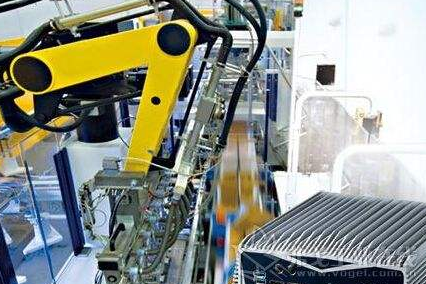
According to the German De magazine on the interpretation of the problem, "security" here have two meanings: on the one hand, people get the data must be credible, on the other hand they must have a security anti-theft function, can be free from external theft or Damage, such as hacking, spy.
"Anyone who guarantees safe data conversion is the main problem, and all the people, including government, researchers and businesses, agree that we need new standards to actually implement the new solution effectively." Jerome Hull Time Weekly reporter said.
The lack of standardization is actually another difficulty in the implementation of the German Industrial 4.0 project. The device must not only speak, but also speak the same language, the "interface" to the data terminal.
Germany is committed to becoming the standard developer and promoter of this standard. German Chancellor Angela Merkel believes that Germany can become a catalyst for industrial 4.0 standards, and in Europe and even global implementation of these standards.
German officials did not disclose the relevant content of these standards, but it is learned that the standard development work is in full swing. Recently, the Industrial 4.0 platform has just released an industrial data space, visitors can use the space to obtain all the world's industrial information. This space has a unified "interface" standard, and allows everyone to access it.
Explore the standardization of others. The fact is that in order to cope with the industrialization, the Internet of Things and intelligent services into the manufacturing sector and more than one in Germany. Although the formulation is different, but the content is similar, such as the United States "advanced manufacturing national strategic plan", Japan's "Science and Technology Industry Alliance", the British "industrial 2050 strategy" and so on. The top design of China's manufacturing industry - "Made in China 2025" has also been launched in the first half of this year.
During the visit to Germany in November 2014, China and Germany jointly issued the "Sino-German Cooperation Platform for Action: Innovation", announcing that the two countries will cooperate in the development of industry. Cooperation in this field is expected to become a new direction for Sino-German future industrial cooperation The And learn from the German industry 4.0 plan, "China made 2025" established strategy.
Christina Otte, a China affairs expert at the German Federal Trade and Investment Agency, said in a written interview with the Times correspondent that China's industrial transformation played an important role in China's transformation of China's economic growth model. The Chinese government is trying to regain economic growth by reducing investment and export-based growth and seeking more growth from domestic demand. In order to achieve this goal, China needs to achieve industrial modernization. In order to maintain GDP at a stable level of growth, it needs to switch from a labor-intensive production model to an efficient high-tech production model. Labor costs have risen sharply and will continue to expand in the future. China will face a shortage of qualified talent in the near future. In the long run, only those who enter the high-end manufacturing enterprises have the opportunity to stay in the market. This pressure from modernization will affect almost all of China's industries, and industrial automation and integration of new generation of information technology is the key.
"German industry 4.0 can provide China with a model for future industrial development to help China address some of the challenges facing it now, such as resources and energy efficiency, urban production and demographic change," says Christina Otte.
With the addition of China, the German industry standards for the development of 4.0 will accelerate.
